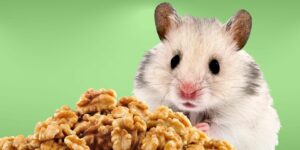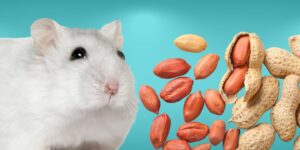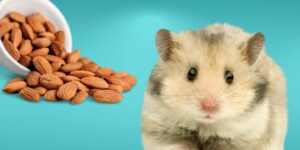Hamsters can eat pistachios, but it is crucial to feed them these nuts in moderation and as part of a balanced diet. Pistachios can provide key nutrients and vitamins for a hamster, but they can also pose some potential risks. This article will discuss the nutritional value of pistachios, the potential risks of feeding them to hamsters, how to feed them safely, and some alternatives to consider.
Introduction
What Are Pistachios?
Pistachios are a type of nut that come from the Pistacia vera tree, native to the Middle East and Central Asia. They have a hard outer shell that needs to be removed before consumption and are commonly used in a variety of food dishes, candies, and desserts.
Why Consider Feeding Pistachios to Hamsters?
Feeding your hamster pistachios can provide them with essential nutrients and vitamins when consumed in small amounts. However, it is essential to understand the risks and consider the best ways to safely introduce them to your hamster's diet.
Nutritional Value of Pistachios
Protein Content
Pistachios are a good source of protein, which is necessary for a hamster's muscle and tissue growth and repair.
Fiber Content
The fiber content in pistachios can aid in digestion and help maintain a healthy weight for your hamster by ensuring proper bowel movements.
Healthy Fats
Pistachios contain monounsaturated and polyunsaturated fats that may contribute to your hamster's overall health when consumed in moderation.
Vitamins and Minerals
Pistachios are rich in essential vitamins and minerals such as vitamin B6, magnesium, and phosphorus, which play crucial roles in maintaining a hamster's overall health.
Potential Risks of Feeding Pistachios to Hamsters
High Fat Content and Obesity
Pistachios have a high-fat content that can contribute to obesity if fed in large quantities. This can lead to serious health issues and a shortened lifespan for your hamster.
Difficulty in Digestion
Hamsters can have difficulty digesting pistachios, which can result in gastrointestinal issues.
Potential Allergens
Some hamsters might be allergic to nuts, including pistachios. Be cautious when introducing pistachios to your hamster's diet and monitor them for any signs of an allergic reaction.
Choking Hazards
The hard outer shell of pistachios can pose a choking hazard for hamsters. Make sure to remove the shell before feeding them to your hamster.
How to Feed Pistachios to Hamsters Safely
Proper Portion Sizes
Only give your hamster a small amount of pistachios, no more than a few per week.
Choosing the Right Type of Pistachios
Opt for unsalted, unroasted pistachios, as these are less likely to be harmful to your hamster.
Introducing Pistachios to Your Hamster's Diet
Introduce pistachios to your hamster's diet slowly and monitor their reaction.
Monitoring Your Hamster's Health
Keep a close eye on your hamster's health when introducing pistachios to their diet, ensuring they are tolerating them well.
Balancing Your Hamster's Diet
Provide your hamster with a variety of other healthy foods in addition to pistachios to ensure a balanced diet.
Alternatives to Pistachios for Hamsters
Other Nuts and Seeds
Consider offering almonds, sunflower seeds, or pumpkin seeds in moderation as alternatives to pistachios.
Fruits and Vegetables
Hamsters can also benefit from consuming small amounts of fresh fruits and vegetables like apples, carrots, and broccoli.
Commercial Hamster Food
Feeding your hamster a high-quality commercial hamster food can provide essential nutrients in a balanced and controlled manner.
Conclusion
Recap of Important Points
In moderation, hamsters can eat pistachios, but there are potential risks to consider. To safely include pistachios in your hamster's diet, offer them in small quantities, preferably unsalted and unroasted.
Final Thoughts on Hamsters and Pistachios
By carefully following the guidelines presented in this article, you can ensure that your hamster safely consumes pistachios in a balanced diet, providing essential nutrients and vitamins to maintain their overall health and well-being.







